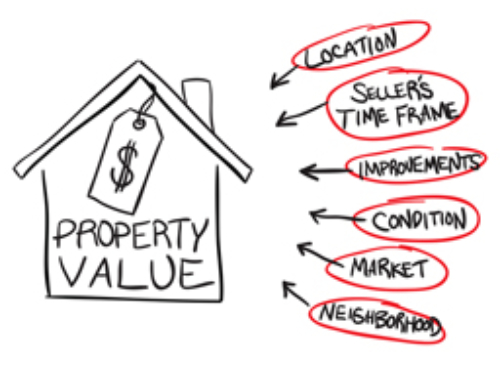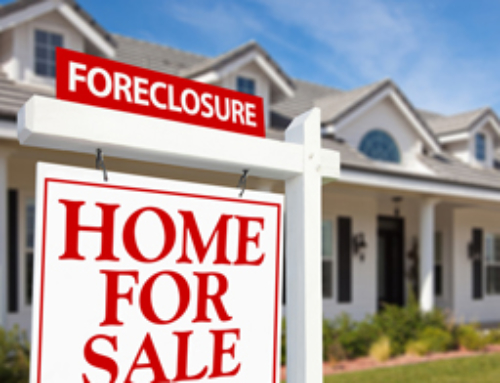 Prepare Your Real Estate Investing Exit Strategy Before You Buy
Prepare Your Real Estate Investing Exit Strategy Before You Buy
By Andy Heller
There’s no denying it: We’re in the middle of a crazy real estate market. While there are still many different ways investors can make money in real estate, my strongest recommendation is to pick a strategy that allows for long-term wealth building while remaining realistic about what one can and cannot hope for in today’s market.
In my real estate investor workshops, I teach that the first step any investor should take when investing is to determine an exit strategy. This often surprises people: Why start with the end? The reason is that an investor must be sure to purchase the right type of property for the exit strategy to work. Time and time again, I have seen investors fail because their goals and plans do not fit the properties they are buying or do not work given the margins they get upon purchase.
Six or seven years ago, when loans were easy to get, it was a very challenging market for buy-and-hold landlords. Nationwide, countless renters left the rental market and became first-time homebuyers. Rental landlords all over the country struggled, while it was a good market to be a buy-and-flip investor.
Now, we’re facing the opposite problem. I’ve seen projections that predict as many as 5 million new renters in the next five years. Former homeowners moving into the rental market are fueling this growth. In many communities, bank foreclosures are not being fixed up at sufficient pace to satisfy the growing demand for rental units. As a result, in most communities today we are seeing rising rents.
So, how does this affect your exit strategy?
In today’s real estate market, it’s very difficult for people to get loans—in fact, it may be the most difficult market in 40 years to get a loan. Today, the buy-and-flip investor may not have anyone onto whom to offload the property. Without a buyer, there are no profits for future purchases. With fewer buyers, the only thing a buy-and-flipper can do is to sell at a discount, which further eats away at profits. Therefore, in today’s real estate market, it is much easier to be a buy-and-hold investor.
The lease option
Not every investor wants to be a landlord forever, and many rental landlords tire of dealing with frequent vacancies, repairs and improvements, and rent collection challenges. My solution is that I’ve been implementing lease options in my investing practices for the last 20 years. With a lease option, you’re giving tenants the ability to buy the property in the future while you, the investor, are able to get cash windfalls to purchase more properties. Done right, we find that 25 percent to 33 percent of lease option tenants will purchase within the first three to five years.
In addition, with a lease option, tenants accept responsibility for repairs and maintenance, and they tend to take their rental obligation more seriously. Lease option leases can be as long as three to four years (with extensions going well beyond four years). All this makes for a much easier experience as a landlord.
There is no “best” strategy for everyone, but it’s up to the investor to evaluate the market, the properties, potential buyers, and tenants to determine what will work. Starting your evaluation with an exit strategy will allow you to maximize your real estate investing profits.
Come back next week for a more detailed explanation of my experience with the lease option and its benefits for both investors and tenants.
 Andy Heller is the author of two best selling real estate books, including “Buy Low, Rent Smart, Sell High” which was recommended by Fortune Magazine. Andy has been investing in residential real estate for over 20 years, and travels the country teaching others how to get started in real estate investing. Most recently Andy co-founded www.RealtyJoin.com, the social networking site for the entire real estate industry. Andy can be reached on RealtyJoin, and encourages all to ask questions and friend him on RealtyJoin.
Andy Heller is the author of two best selling real estate books, including “Buy Low, Rent Smart, Sell High” which was recommended by Fortune Magazine. Andy has been investing in residential real estate for over 20 years, and travels the country teaching others how to get started in real estate investing. Most recently Andy co-founded www.RealtyJoin.com, the social networking site for the entire real estate industry. Andy can be reached on RealtyJoin, and encourages all to ask questions and friend him on RealtyJoin.
READ MORE:
Help Is on the Horizon for Unemployed Homeowners
Housing Price Predictions: When Will Prices Rise?
The Cube Project: What Would You Give Up To Live In A Tiny House?
Now is the Time of the Real Estate Investor
Pet-Friendly Housing Steering the Real Estate Market






